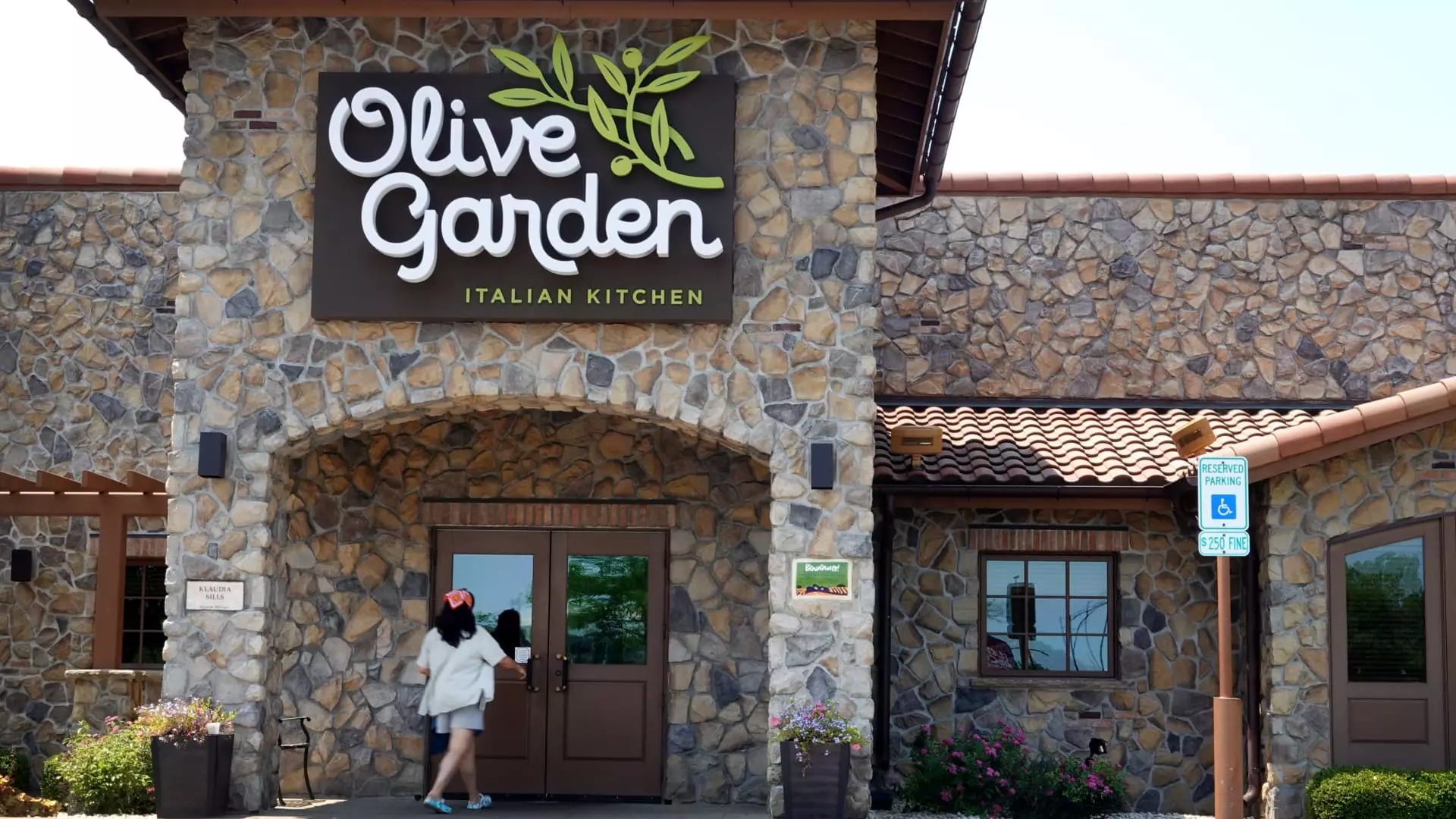Darden Restaurants, one of the leading players in the dining industry, recently reported its quarterly earnings, showcasing a mixed bag of results that highlight both challenges and opportunities within its diverse portfolio. As the company continues to navigate a complex economic landscape, its latest figures offer insight into its operational resilience and strategic direction.
On Thursday, Darden unveiled its fiscal second-quarter results, which aligned closely with Wall Street’s predictions. The company reported an adjusted earnings per share of $2.03, slightly exceeding expectations of $2.02. Revenue totaled $2.89 billion, marginally below the anticipated $2.90 billion. Regardless, the market reacted positively, with Darden shares jumping 13% in the morning trading session, reflecting investor confidence in the company’s strategic positioning and growth potential.
The net income for the second quarter stood at $215.1 million, amounting to $1.82 per share, marking a year-on-year increase from $212.1 million, or $1.76 per share. Excluding certain acquisition costs associated with Chuy’s, Darden’s performance was commendable. The overall growth in net sales, up by 6% year-over-year, demonstrates the company’s ability to adapt and thrive amid shifting consumer preferences and economic fluctuations.
One of the standout aspects of Darden’s report was its same-store sales growth, which rose by 2.4%, significantly outperforming the StreetAccount estimates of 1.5%. This growth was pivotal, especially considering the varying performances across its restaurant brands. LongHorn Steakhouse emerged as a key contributor, boasting an impressive same-store sales increase of 7.5%, far surpassing the expected 4.1%. This success underlines the brand’s effective strategies in combining quality offerings with competitive pricing, catering to a discerning customer base.
In contrast, Olive Garden, which plays a crucial role in Darden’s revenue generation—contributing over 40%—reported a modest same-store sales growth of 2%. Although this exceeded analysts’ projections, the figures do indicate a need for ongoing innovation. The return of the popular Never Ending Pasta Bowl promotional event appeared to resonate well with diners, suggesting that promotional strategies remain vital for driving sales in an increasingly competitive market.
Darden’s CEO, Rick Cardenas, highlighted an encouraging trend among consumers, particularly those with incomes between $50,000 and $100,000, who are dining out more frequently. This demographic shift hints at a potential recovery in consumer confidence, though the absence of increased visits from higher-income clientele suggests segmented recovery dynamics that Darden must navigate carefully.
The impact of recent hurricanes, notably Helene and Milton, has also played a role in shaping the operational landscape, leading to the temporary closure of one restaurant. However, Darden’s capacity to recover and adapt, as illustrated by the anticipated reopening timeline, signals a robust operational strategy that mitigates disruptions.
While Darden’s casual dining segments exhibited resilience, its fine-dining sector—including notable brands like The Capital Grille and Ruth’s Chris Steak House—struggled, recording a same-store sales decline of 5.8%, significantly lower than the predicted 2.8%. This performance can be linked to rising costs associated with fine dining, which have deterred value-conscious consumers. Furthermore, the shift of Thanksgiving into the fiscal third quarter negatively impacted this segment’s sales.
Despite these obstacles, Darden’s strategic acquisitions—such as the recent $605 million purchase of the Tex-Mex chain Chuy’s—reflect a commitment to diversify and bolster its market presence. The integration of Chuy’s is anticipated to enhance Darden’s financial outlook, with total sales projections updated to $12.1 billion for fiscal 2025.
As Darden navigates the complexities of the current economic climate, its proactive strategies, such as expanding delivery options through partnerships like Uber, signify a forward-thinking approach. Moreover, the company’s reaffirmed net earnings per share guidance of $9.40 to $9.60 demonstrates confidence in its operational capabilities.
Darden Restaurants stands at a critical juncture within the restaurant industry. While it faces undeniable challenges, its latest performance underscores a resilient business model capable of adapting to shifting consumer behaviors. As the company strives for growth amid the complexities of the market, its strategic decisions will be essential in maintaining investor confidence and achieving long-term success.


Leave a Reply